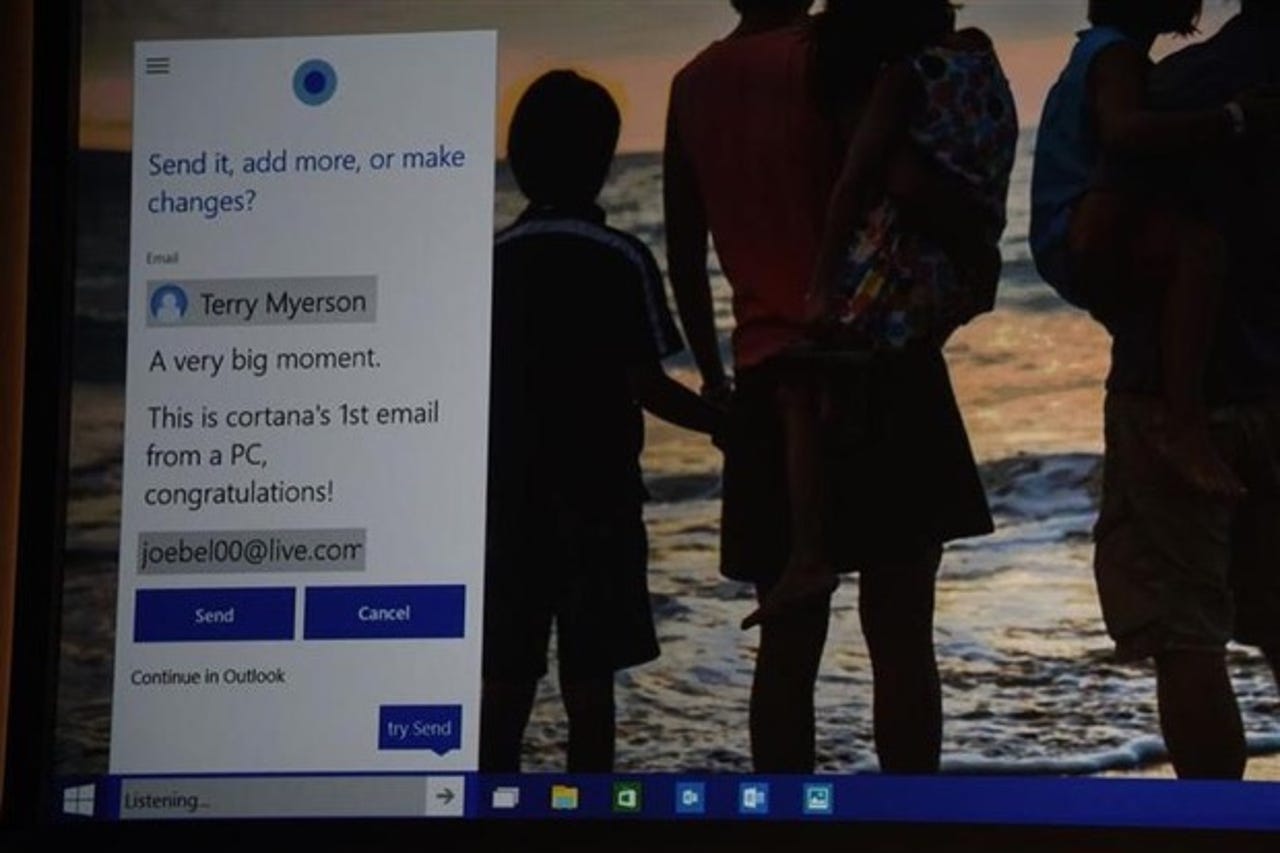Windows 10: Can Cortana persuade us to talk to our tech?

Microsoft has today been busy showing off the latest test build of Windows 10 , and it seems that Cortana, the voice-controlled assistant from the Windows Phone platform (or the video game Halo, take your pick) is to play a prominent part in the new operating system. But can Windows 10 persuade us to talk to our tech?
AR + VR
I'm going to reserve judgement on what I've seen in the demo so far until we get some code to play with, but seeing how deeply Microsoft has embedded Cortana into Windows 10 has certainly caused me to raise an eyebrow. Microsoft is once again trying to reinvent the way we interact with PCs with Windows 10, just like it did with Windows 8. Back then it was touch, now it's voice. It didn't work out well for Windows 8, and I'm far from convinced that it will work out that well for Windows 10.
The problem with voice-controlled assistants - and for that matter, voice-control itself - is that at best they feel gimmicky.
Take Apple's Siri for example. Here's a product that initially overflowed with promise and potential. It seemed like a logical feature to build into a smartphone, after all, people have been talking into their phones for years. But it turned out to be too buggy and frustrating to use, and the accuracy just wasn't there, so nowadays the only time I come across Siri is when I accidentally summon it, and I quickly - and cold-heartedly - dismiss it.
Siri just doesn't work. It's up there with iTunes as the most frustrating thing that Apple has put its name to
Now without a doubt Cortana is better than Siri, as is the voice-control feature built into the Xbox Kinect, but again the accuracy is patchy, and that swiftly leads to frustration, which in turn makes me wary of using it in the future.
If Microsoft is to have a realistic stab at making Cortana an invaluable part of Windows then the accuracy can't just be good; it's going to have to be as near to magical as is humanly possible. If it fouls up more than a few times then it's toast.
One thing is for sure, OEMs better start equipping their hardware with high-quality microphones and noise-cancelling technology.
I'm also never sure about the logistics of voice-control. Assuming a high level of accuracy then I can see it having a place in the car and the living room, but when it comes to corporate use, I'm far from convinced. Having a room full of people taking to their PCs sounds like a nightmare to me, and that's without considering the privacy and security issues.
Like I said at the beginning of this piece, I'm reserving final judgement until I get to try out this technology under real-world conditions. But Microsoft has set the bar incredibly high, and even if it can deliver on these lofty promises, I'm just not convinced that Cortana won't just languish on tens of millions of PCs, gathering digital dust.
Welcome to Windows with holograms (pictures)
See also:
- Why the desktop PC is far from dead
- The Windows 10 challenge: Making people care about Windows again
- Why Apple won't ditch Intel... yet
- A $10 USB charger with built-in wireless keylogger means more security headaches
- Macs vulnerable to virtually undetectable virus that "can't be removed"
- Free antivirus scanners for Windows PCs
